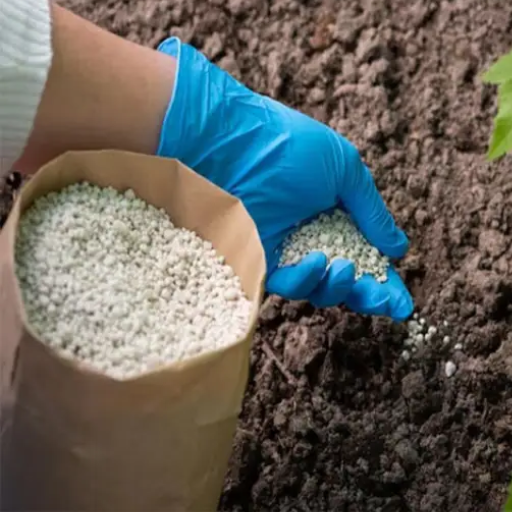When it comes to nurturing plants for maximum health and productivity, choosing the right fertilizer is crucial. Organic 20-20-20 fertilizer, often dubbed the “all-purpose plant food,” stands at the forefront of sustainable gardening solutions. This balanced formula delivers equal parts nitrogen, phosphorus, and potassium—the three essential macronutrients plants need to thrive. Whether you’re tending to a vibrant vegetable garden, maintaining robust ornamental plants, or cultivating lush lawns, understanding the science and benefits of this versatile fertilizer can make all the difference. We’ll explore what makes Organic 20-20-20 fertilizer indispensable for gardeners and growers, unravel its unique properties, and provide strategies for integrating it effectively into your gardening routine.
Understanding 20-20-20 Fertilizer
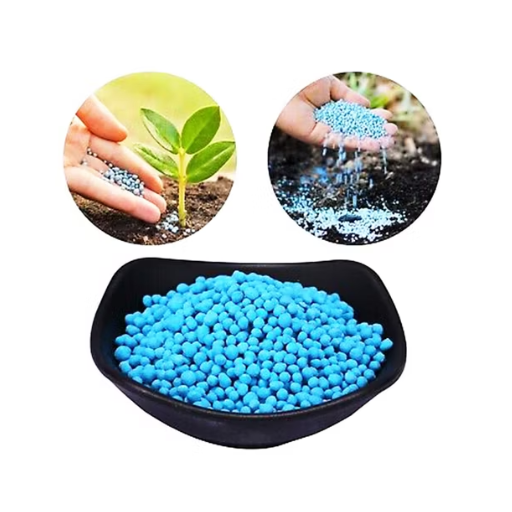
What is 20-20-20 Fertilizer?
This fertilizer is a balanced, water-soluble fertilizer containing equal quantities of nitrogen (N), phosphorus (P), and potassium (K)- the three principal nutrients needed by plants for growth and development. The series of numbers “20-20-20” indicates the percentage by weight of the three substances present; that is, this particular fertilizer has 20 percent each of nitrogen, phosphorus, and potassium. The equal proportioning makes this fertilizer almost an all-rounder for innumerable needs of plants, catering to home gardeners as well as commercial farming.
Nitrogen enhances the development of green leaves and general vegetative growth. Phosphorus encourages root development and flowering, which is crucial for fruiting and flowering plants. Potassium helps the plant keep itself healthy by improving resistance to diseases, strengthening the tissues, and holding water. The balance maintained between these three nutrients makes the 20-20-20 fertilizer fit for all stages of development-whether it’s seedling development or mature plant maintenance.
Usually, this fertilizer is applied as a liquid feed by dissolving it in water, so letting the plants can absorb it. Its water-soluble nature ensures nutrients are instantly available to produce plant health benefits, which are very fast and noticeable. Be it edible crops, ornamental plants, or lawns, 20-20-20 fertilizer is one of the best options available to efficiently eliminate types of nutrient deficiencies and enhance the overall performance of plants.
The Role of Nitrogen, Phosphorus, and Potassium
Nitrogen, phosphorus, and potassium—commonly called NPK—are the primary macronutrients needed for plant growth and development. Each nutrient ensures healthy plant physiology and productivity, albeit in different ways. Nitrogen is essential to foliage growth as it is involved in producing chlorophyll, which is used for photosynthesis. A nitrogen-deficient plant does not grow optimally, along with having pale leaves due to a limitation in synthesizing proteins and enzymes critical to its growth.
Phosphorus is necessary for root development and hence energy transfer within plants. It strengthens the root system, aids flowering, and encourages the production of fruits and seeds. Phosphorus is required for the development of the DNA and RNA structures and hence is necessary for cellular function and growth. A deficiency in phosphorus leads to poor root structure, slow maturity, and poor yield.
Potassium improves a plant’s resistance against stresses caused by drought, pest invasions, and certain plant diseases. It controls water movement, enzyme activation, and photosynthesis, thus regulating plant metabolism at its optimum level. A potassium deficiency results in weak stems, yellowing of leaf edges, and less resistance to environmental stresses. With these together in balance, nitrogen, phosphorus, and potassium will provide strong plant growth and high agricultural productivity. Hence, fertilizer application, for instance, of 20-20-20, will maintain a constant supply of the three nutrients to fulfill the varying developmental needs of plants.
How Water-Soluble Fertilizers Work
This type of fertilizer dissolves completely in water so that essential nutrients become readily available to plant roots. Fertilizers having nutrient compounds highly soluble in nature thus allow an even application, ensuring nutrients can be delivered completely and precisely to a plant. When dissolved in water, the fertilizer solution is delivered along with irrigation water, in what is called fertigation. This ensures nutrients are deposited directly into the root zone and get absorbed fast, unlike their granulated counterparts.
The variable nutrient concentrations for water-soluble fertilizers also contribute to their efficiency. Depending on the growth stage and the particular nutritional requirements of the plants, groups of growers may alter formulations accordingly-for example, in early growth, a higher ratio of phosphorus fertilizer is applied for the development of roots, while nitrogen-based fertilizers are applied for leafy growth.
More recent versions of water-soluble fertilizers, with advances in formulation, now contain micronutrient chelates and controlled-release agents to reduce losses from leaching or volatilization. From an agronomic perspective, several recent studies highlight that the efficiency of nutrient use could be improved by 25%, whilst environmental integrity could be maintained if water-soluble fertilizers commercially replace conventional fertilizers. This makes them an important stage of precision agriculture for sustainable farming with high productivity.
Benefits of Using Organic Fertilizers
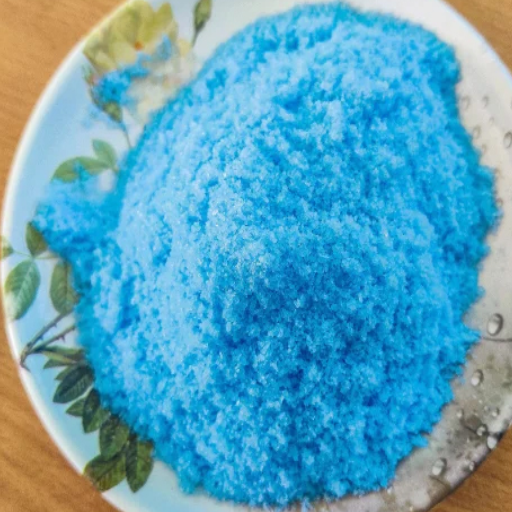
Improving Soil Structure
Given that they contain natural raw materials such as plant residues, animal manure, and compost, organic fertilizers are important for improving soil structure. When these materials are added, they provide the soil with some organic matter to bind soil particles, which are then aggregated. Aggregates with increased stability improve porosity and aeration, very much needed for root growth and efficient water infiltration. The root zones thus created become friendly to beneficial microorganisms, further aiding in more productive soil ecosystems.
Besides, organic fertilizers also increase the water and nutrient retention capacity of the soil. In this respect, organic matter improves the soil’s Cation Exchange Capacity (CEC), which means that nutrients get retained and are available to plants better, preventing their losses by leaching. Several studies have illustrated that soils rich in organic matter are more resistant to erosion and degradation. In this way, the valuable topsoil is retained, and sedimentation in water bodies caused by soil erosion is checked.
Organic fertilizers, thereby, in the long run, help curb the dependence on synthetic alternatives and initiate the slow realignment of degraded soils. This is vital in areas of heavy agricultural activity where soil structure degradation remains rampant. Thus, by incorporating organic fertilizers in sustainable farming, farmers can overcome the problems of low yield on infertile soil while employing sustainable practices that ensure soil is conserved for use in production for the days to come.
Promoting Healthy Microbial Activity
Microbial activity is a crucial process in sustaining agricultural productivity and maintaining ecological equilibrium. Soil microbes, which include bacteria, fungi, and actinomycetes, are involved in nutrient cycling, decomposition of organic matter, and defense against plant pathogens. Recent studies point toward a diverse array of microbial populations acting together in the enhancement of soil fertility by nitrogen fixation, phosphate solubilization, and production of growth-promoting compounds.
Cover cropping and applications of organic amendments such as compost and biochar were shown to promote microbial diversity. For instance, the porous nature of biochar provides an accommodation for microbial colonies to thrive, improving aeration and moisture retention. Synthetic chemicals, indeed, carry detrimental effects on microbes, and thus minimizing their use protects the organisation and functions of microbial communities.
Agricultural data has shown that soils exhibiting active microbial communities are better placed to withstand environmental stressors like drought and erosion. Supporting microbial health, therefore, serves immediate agricultural purposes while advancing sustainability, defining a critical space for the application of soil microbiology in agricultural innovation.
Application Techniques for Organic 20-20-20 Fertilizer
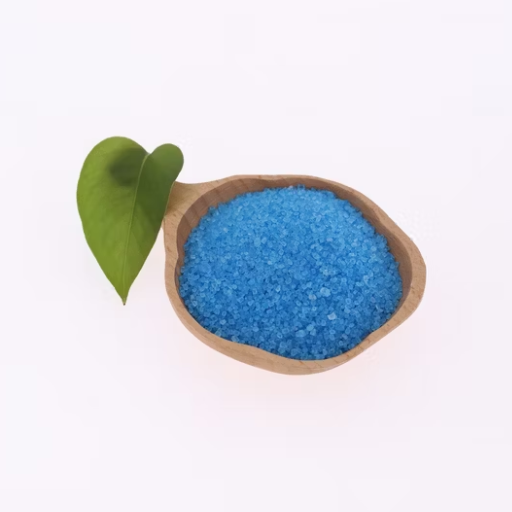
Feeding Guidelines for Beginners
The best results from Organic 20-20-20 come from proper application and scheduled feeding. The fertilizer offers equal proportions of nitrogen, phosphorus, and potassium, thus suitability for almost all crops and soil conditions. Beginners should perform a soil test to determine existing nutrient levels and deficiencies to tailor the dosage to the needs.
The rate of application for most plants is 1-2 tablespoons of fertilizer to a gallon of water. Use this solution to drench the soil around the bases of the plants or spray it onto their foliage, the latter allowing for quicker nutrient absorption. Due to the risk of nutrient burn, seedlings and young plants should have a diluted solution at half the strength of the standard mix. Application is usually best done early in the morning or late in the afternoon to allow reduced evaporation and better absorption.
Depending on the plant and the stage of development, feeding may take place every two weeks for fruits and flowers and every week for leafy greens. While not feeding plants, keep a keen eye, observing their health and any growth pattern changes, making adjustments to their feeding and watering schedules as needed. Feeding plants regularly helps keep them healthy and strong while avoiding nutrient depletion over an extended period. Over-fertilizer application always remains harmful, almost as bad as allowing the plant to dry out, as the fertilizer will burn the roots and damage the environment in which it is applied.
Foliar Feeding: Boosting Plant Health
Nutrient provision via foliar feeding is a process wherein a liquid fertilizer is sprayed directly on the target plant’s leaf surface. The nutrients are absorbed via the stomata and epidermal cells more quickly, cutting short the slower nutrient uptake by the root zone. Research indicates that foliar feeding has special value when the plants are undergoing stress, such as drought, root damage, or nutrient unavailability in the soil. These plants get an instant nutrient boost once applied to the foliage, which accelerates their metabolic processes and increases growth.
The make-up of the foliar spray differs in composition according to the type of plant and growth stage that needs attention. For instance, nitrogen foliar feeds may be used effectively to stimulate leaf growth and vigor during the early vegetative phase. Whereas, during the flowering or fruiting phases, phosphorus and potassium solutions are liberally applied to induce flowering and improve fruit quality. Zinc, iron, and manganese may also be added to the foliar recipe to correct deficiencies of trace elements. It is very important to apply foliar sprays at the correct time, which is generally early morning or late evening when stomata are most open, and conditions like wind and heat do not prevent absorption.
Although foliar feeding has many benefits, the right way is to use it as a complementary form of fertilization to that in the soil. Because in excess, foliar feeding will not fix imbalances in the soil, which, over time, do affect the health of plants. A well-executed foliar application maximizes the foliar feed benefits and entails uniform coverage of plants’ leaves without allowing any runoff, along with diluted solutions that will not burn the leaves. Modern agriculture research has since given more impetus to the development of precision foliar techniques, where technology, such as drone spraying and nano-nutrient formulations, has been incorporated to enhance nutrient delivery while conserving resource use to make agriculture more sustainable.
Comparing Organic 20-20-20 with Other Fertilizer Types
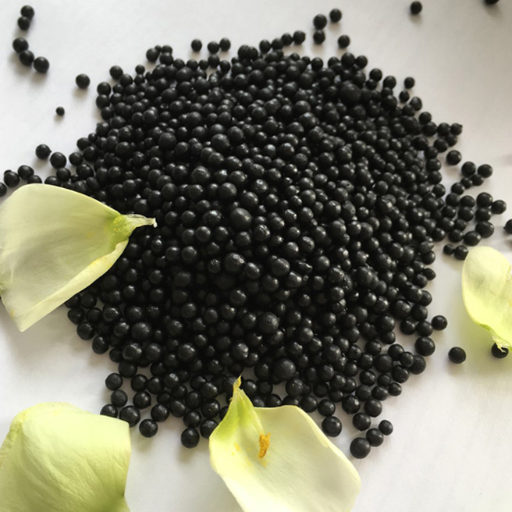
Organic vs. Synthetic Fertilizers
Organic fertilizers enhance soil quality and sustainability, whereas synthetic fertilizers provide instant nutrient availability but might detract from soil quality in the long run.
|
Aspect |
Organic |
Synthetic |
|---|---|---|
|
Origin |
Natural |
Chemical |
|
Release |
Gradual |
Instant |
|
Soil Impact |
Enriches |
Depletes |
|
Eco-Friendliness |
High |
Low |
|
Expense |
Higher |
Lower |
|
Ease |
Moderate |
Simple |
|
Duration |
Long-lasting |
Short-lived |
|
Approach |
Sustainable |
Aggressive |
|
Examples |
Compost, Kelp |
Urea, Ammonia |
|
Effect |
Balanced |
Rapid Growth |
Pros and Cons of Slow-Release Variants
Slow-release fertilizers are designed to supply nutrients at a controlled rate, imitative of the nutrient intake patterns across various plants. If implemented into agricultural or horticultural systems, such an approach has the potential to improve efficacy and sustainability. Here are the potential pros and cons of the slow-release types:
Pros
- Reduced Nutrient Loss: Slow-release fertilizers reduce nutrient leaching and runoff, especially in sandy soils and heavy-rainfall areas, making them environmentally preferable.
- Increased Consistency in Nutrient Availability: These fertilizers slowly supply nutrients into the soil over a long time so that plant growth is balanced, avoiding the spurring of nutrient deficiency over time.
- Less Frequent Application: Slow-release fertilizers have a long period of nutrient release; therefore, they need reapplication less often, saving time and labor costs.
- Improved Yields and Quality: Put together with optimal nutrient levels, slow-release fertilizers can offer high yields with good-quality fruits, vegetables, and ornamental plants.
Cons:
- High Initial Cost: Slow-release fertilizers tend to be more costly because of the production process and composition of their materials compared to conventional fertilizers.
- The Neighborhood Effect Is Delayed: Plants that require nutrients straight away may not benefit from the presence of these fertilizers in the soil; hence, they are not suitable for rapid growth stages or nutrient-deficient soils.
- Environmental Hazard under Certain Situations: Prolonged release of fertilizers could cause unnecessary build-up in the soil if it has not been well coordinated in its application, in turn affecting the microbial activities in sensitive ecosystems.
- Release Rates May Vary with Temperature: Their functional efficiency will tend to vary depending upon soil temperature and other environmental factors, with the release sites being accelerated under warm conditions, which in turn may cause uneven availability of nutrients.
The applications of slow-release fertilizers can be enhanced through precision agriculture practices, including advanced technologies for soil mapping and nutrient monitoring; coupled with smart farming practices, these fertilizers highlight a critical pathway toward more sustainable and optimized agricultural systems.
Environmental Impact of Different Fertilizer Types
Depending on fertilizer composition, application methodology, or the ecosystem to which it belongs, its environmental impact largely varies. An inorganic fertilizer typically associated with environmental stresses has been the likes of ammonium nitrate or potassium chloride fertilizers. With a core problem in nutrient runoff, eutrophication of aquatic systems, production, and greenhouse gas emissions from these types of fertilizers, a rapid release of nutrients usually occurs, thus resulting in excessive nutrient availability and leaching and damage to nearby ecosystems.
Under alternative fertilizers, a slow release or controlled release is offered in favor of the environment. These fertilizers reduce the rate of nutrient availability to plants, for runoff and water pollution. Then, further improvements in biofertilizers provide the application of natural organic materials such as compost, bone meal, or microbial inoculants that continue to cycle nutrients, build soil health, and reduce dependence on nutrient sources derived synthetically.
Also equally important in considering an environmental footprint is the fertilizer manufacturing process. Since ammonia synthesis is the first stage of nitrogen fertilizer production, it is highly energy-consuming and is a major CO2 emitter. Green ammonia produced with renewable energy sources sets an example for how decarbonization of fertilizers can at least partly be set into motion. In addition, several precision application technologies, such as variable-rate technology and sensor-based nutrient management, improve the alignment of nutrient application with crop demands, thereby increasing nutrient use efficiency and limiting environmental pollution.
Choosing the Right Organic Products
Identifying Quality Organic Fertilizers
Selection of potent, quality organic fertilizers is a prerequisite to optimizing agricultural productivity, maintaining soil health, and reducing environmental impact. The qualities possessed by quality organic fertilizers include the composition of nutrients, nutrient-release rates, and the presence of humic organic matter; the crucial macronutrients N, P, and K should appear balanced according to the crop requirements. Organic matter present in these fertilizers is known for ameliorating the structure of soils, increasing moisture retention, and activating microbial life.
Before choosing any product, its raw materials and processing methods must be verified. Organic fertilizers, being organic, derive nutrients from plant materials, animal wastes, or the wastes thereof. The processor must extract pathogens and, at the same time, retain the bioavailability of nutrients in the product. For example, nutrients tend to be slowly released into soils by composted manures or plant residues that serve well in the gradual buildup of soil fertility.
Another vital aspect of testing an organic fertilizer is the analysis of its solubility vis-à-vis the compatibility with the existing soil properties. Soils that match up with the pH and texture of the product would enable better and quicker efficiency of nutrient absorption. One must also see if the product is contaminated with a hazardous level of heavy metals or any other materials for the fertilizers to conform to safety and environmental rules and regulations. Through meticulous scrutiny and the application of innovative soil diagnostic toolkits, farmers can select those organic fertilizers that maximize the yield potential while simultaneously conserving ecological sustainability.
Achieving Long-Term Benefits with Organic Practices
My system for producing long-term returns via organic methods is built around the concepts of soil health, biodiversity, and sustainability. I do mix crop rotations and companion planting so as to keep the soil fertile and pests in check naturally. These methods ensure that the life forms in the ecosystem may continue to thrive while minimizing chemical inputs. By studying the nutrient requirements of many plants, I design rotations that avert the depletion of nutrients in the soil or maintain nutrients in an equitable setting.
An additional core principle is to amend organic matter into the soil via, for instance, compost and mulch. Both can enhance the soil structure and improve water retention. They also allow the plants to receive nutrients steadily. Soil tests of pH and nutrient levels all become data points over time toward keeping the growing conditions exact with amendments. At the same time, selecting native or regionally adapted plant varieties remains a priority for me since they prey less on local ends to be assisted.
Lastly, I strive to ensure the health of beneficial ecosystems by allowing plants friendly to pollinators and natural predators for garden pests to take root. This makes for a robust system where plants and insects exist together peacefully without much human interference. When done consistently, along with updating my techniques from new research and environmental shifts, the systems mentioned above will guarantee that my organic gardening values bring forth sustainable, long-term benefits for both productivity and environmental health.
References
Frequently Asked Questions (FAQ)
Q: What is organic 20-20-20 fertilizer?
A: Organic 20-20-20 fertilizer is a balanced water-soluble fertilizer that contains equal parts of nitrogen, phosphorus, and potassium. It is designed to provide essential nutrients for a variety of plants, including flowers, vegetables, and indoor plants, promoting optimal growth and vitality.
Q: How do I use organic 20-20-20 fertilizer?
A: To use organic 20-20-20 fertilizer, mix the recommended amount with a gallon of water to create a liquid plant food solution. Apply it to the soil or as a foliar spray on your plants, ensuring even coverage for maximum nutrient absorption and to enhance plant health.
Q: Can I use organic 20-20-20 fertilizer for indoor plants?
A: Yes, organic 20-20-20 fertilizer is suitable for indoor plants. It delivers essential macronutrients that are vital for the growth and health of houseplants. Regular feeding with this fertilizer can help your indoor plants thrive and achieve a lush appearance.
Q: What makes organic 20-20-20 fertilizer a better choice than synthetic options?
A: Organic 20-20-20 fertilizer is a healthier alternative to synthetic fertilizers as it promotes soil health and enhances the ecosystem. It provides a balanced nutrient formula that feeds plants without the risk of chemical runoff, ensuring a more environmentally friendly solution.
Q: Is organic 20-20-20 fertilizer effective for outdoor gardening?
A: Absolutely! Organic 20-20-20 fertilizer is effective for outdoor gardening as it supports the growth of various crops, including lettuce and flowers. Its balanced nutrient content helps promote vigorous growth and improves the flavor of your produce.
Q: How often should I feed my plants with organic 20-20-20 fertilizer?
A: For optimal results, it is recommended to feed your plants with organic 20-20-20 fertilizer every 4 to 6 weeks during the growing season. This regular feeding schedule will help ensure that your plants receive a consistent supply of nutrients to support their growth stages.
Q: What types of plants benefit the most from organic 20-20-20 fertilizer?
A: Organic 20-20-20 fertilizer is versatile and can benefit a wide range of plants, including vegetables, flowers, and shrubs. It is particularly effective for plants in the bloom stage and those requiring an immediate nutrient boost for healthier growth.
Q: Can I use organic 20-20-20 fertilizer on my orchids?
A: Yes, you can use organic 20-20-20 fertilizer on orchids. Dilute the fertilizer in water and apply it as a liquid feed to help nourish your orchids, promoting robust growth and vibrant blooms.
Q: What is the best way to store organic 20-20-20 fertilizer?
A: To maintain the effectiveness of organic 20-20-20 fertilizer, store it in a cool, dry place away from direct sunlight. Ensure the container is tightly sealed to prevent moisture absorption and preserve its nutrient balance for long-term use.



